When you start taking an antidepressant, you expect to feel better. But for some people-especially younger ones-something unexpected happens: suicidal thoughts begin to surface. It’s not common. It’s not inevitable. But it’s real enough that the U.S. Food and Drug Administration (FDA) put a Black Box warning on every antidepressant prescription bottle. This isn’t just a small note. It’s the strongest safety alert the FDA can give. And it’s been changing how doctors treat depression-for better and worse.
What Is a Black Box Warning?
A Black Box warning is the FDA’s way of saying: “This drug can cause serious harm. You need to know this before you take it.” It’s printed in bold, boxed text at the top of the drug’s official prescribing guide. No doctor can miss it. No pharmacist can skip it. And no patient should ignore it. The warning was added in October 2004 after a review of 24 clinical trials involving over 4,400 children, teens, and young adults. The data showed that those taking antidepressants had about twice the risk of suicidal thoughts or behaviors compared to those taking a placebo. No one died in these trials-but suicidal thinking, self-harm, and plans to end one’s life increased. By 2006, the FDA expanded the warning to cover everyone under age 25. It applied to all antidepressants, including SSRIs like fluoxetine (Prozac), sertraline (Zoloft), and paroxetine (Paxil), as well as others like venlafaxine (Effexor) and bupropion (Wellbutrin). Only fluoxetine and sertraline kept special exemptions for treating pediatric OCD. The warning doesn’t say antidepressants cause suicide. It says they may increase the risk of suicidal thinking-especially in the first few weeks of treatment. That’s a critical difference.Why Does This Happen?
It’s not that antidepressants make people want to die. It’s that they can give people the energy to act on thoughts they already had. Depression drains you. You feel too tired, too numb, too hopeless to even get out of bed. But when medication starts working-usually after 2 to 4 weeks-you begin to feel again. You regain energy. You start thinking clearly. And if you’ve been sitting with dark thoughts for months, those thoughts don’t vanish overnight. They’re still there. Now, you have the strength to act on them. Think of it like this: Depression is like being trapped under ice. You can’t move. You can’t scream. Then someone cracks the ice. You can breathe again-but you’re still underwater. The fear doesn’t disappear. You just have the power to struggle harder. That’s when things get dangerous. That’s why the first few weeks on antidepressants are the most critical. That’s when families and doctors need to watch closely. Not because the drug is evil. But because recovery isn’t instant. And recovery without support can be risky.The Unintended Consequences
Here’s the twist: the warning, meant to protect people, may have hurt them. After the FDA issued the warning in 2004, prescriptions for antidepressants in young people dropped by 22%. Psychotherapy visits fell too. And guess what happened? Suicide deaths among teens and young adults rose by nearly 15% between 2003 and 2005. Why? Because many families, scared by the warning, stopped treatment altogether. Some doctors became hesitant to prescribe. Some patients refused meds outright. And untreated depression? That’s far more dangerous than the risk of suicidal thoughts from medication. A 2023 study in Health Affairs found that the Black Box warning led to:- 14.5% fewer doctor visits for depression
- 19.7% fewer depression diagnoses
- 22.3% fewer antidepressant prescriptions
- 17.1% fewer therapy visits
- 28.6% more emergency visits for drug poisonings
- 14.9% more youth suicide deaths
Is the Warning Still Right?
The debate hasn’t stopped. Some experts still stand by the FDA’s decision. They point to studies showing a clear link between certain antidepressants and increased suicidal behavior in young people-even after controlling for other factors. Others say the warning is outdated. They argue that the original studies were short-term, didn’t track long-term outcomes, and didn’t account for how depression itself increases suicide risk. One 2021 meta-analysis found that not all antidepressants carry the same risk. Paroxetine showed higher risk. Fluoxetine and sertraline showed much lower-or even neutral-risk. The American Psychiatric Association says this clearly: “The benefits of antidepressants for most patients outweigh the risks.” They also warn that avoiding treatment because of fear can be deadly. The FDA reviewed the evidence again in 2022. They didn’t remove the warning. But they did update the language to make it clearer: “The risk is highest in the first few weeks. Monitor closely. Don’t stop treatment without talking to your doctor.”What Should You Do?
If you or someone you love is starting an antidepressant, here’s what matters:- Don’t panic. The risk is small. Most people don’t develop suicidal thoughts.
- Watch closely. The first 4 to 8 weeks are the most important. Look for changes: increased agitation, restlessness, talking about death, withdrawing more than usual.
- Stay in contact. Schedule follow-ups with your doctor at 1 week, 2 weeks, and 4 weeks. Call if anything feels off-even if it seems minor.
- Don’t quit cold turkey. Stopping suddenly can make depression worse. Always talk to your doctor first.
- Combine meds with therapy. Medication alone isn’t enough. Therapy helps you build coping skills. It’s the best protection against suicide.
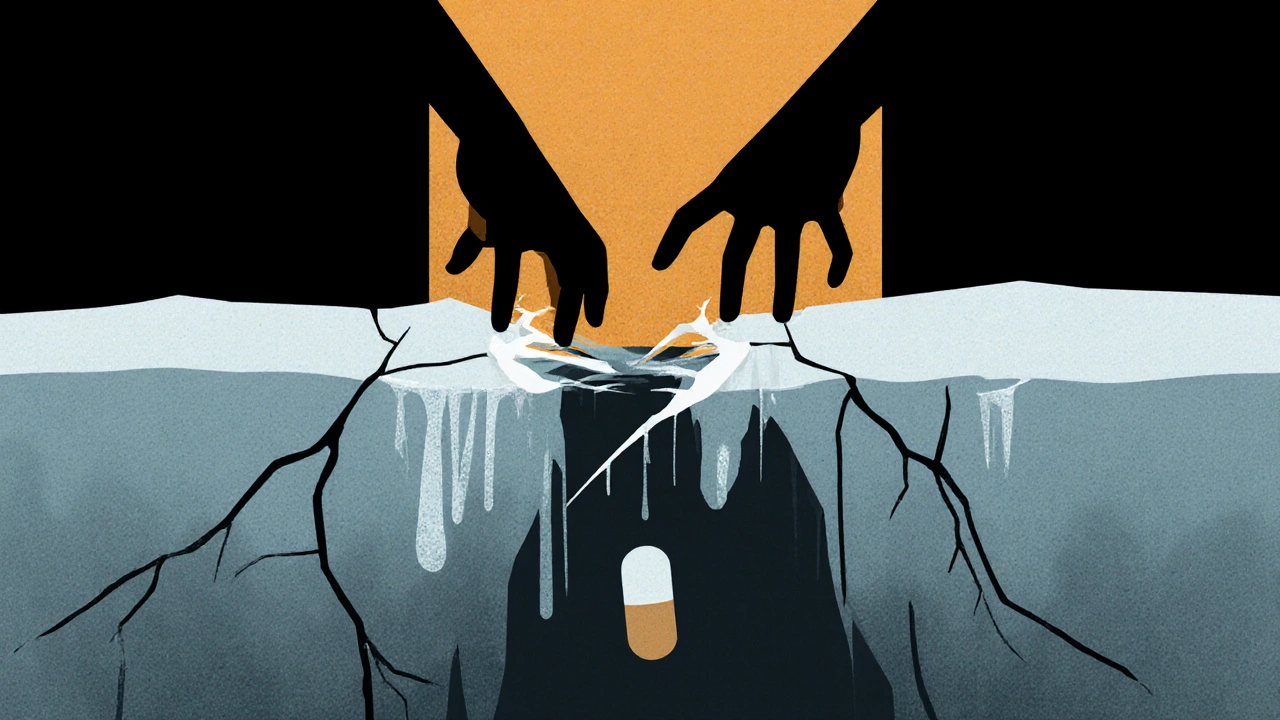
Which Antidepressants Are Safer?
Not all antidepressants are the same. The FDA’s warning covers them all, but research shows some carry more risk than others:| Medication | Risk Level | Notes |
|---|---|---|
| Fluoxetine (Prozac) | Low | Only SSRI approved for depression in children 8+ |
| Sertraline (Zoloft) | Low | Approved for OCD in children 6+ |
| Fluvoxamine (Luvox) | Low | Approved for OCD in children 8+ |
| Paroxetine (Paxil) | Higher | Linked to more suicidal behaviors in studies |
| Venlafaxine (Effexor) | Higher | May increase anxiety early on |
| Bupropion (Wellbutrin) | Low to Moderate | Not an SSRI; may be less likely to trigger agitation |
What If You’re Already on Antidepressants?
If you’ve been on medication for months and feel fine-keep going. The risk of suicidal thoughts drops sharply after the first month. The warning is about the early phase, not long-term use. But if you’ve been feeling worse lately-more anxious, more hopeless, more thoughts of not wanting to live-tell your doctor immediately. Don’t wait. Don’t blame yourself. This isn’t a failure. It’s a signal. Your body is adjusting. You need help. And if you’ve stopped your meds because you were scared of the warning? Talk to your doctor about restarting. Untreated depression is the biggest risk factor for suicide.The Bigger Picture
The Black Box warning was meant to save lives. And it did-for some. But it also scared people away from treatment. And that cost lives too. We need better warnings. Not louder ones. Smarter ones. Ones that say: “This medicine helps most people. But in the first weeks, watch closely. Call your doctor if you feel worse. You’re not alone.” We need doctors who aren’t afraid to prescribe. We need families who understand that depression isn’t weakness. And we need a system that doesn’t punish people for trying to get better. The science is still evolving. But one thing is clear: silence kills. Fear kills. And so does untreated depression. If you’re struggling, reach out. Even if you think no one will understand. Even if you think it’s too late. Help is still here. And it works.Do antidepressants cause suicide?
No, antidepressants don’t cause suicide. But in the first few weeks of treatment, they can increase the risk of suicidal thoughts in some young people-especially those under 25. This is because the medication gives energy back before mood improves. The risk is small and temporary. Most people feel better over time. Untreated depression is far more dangerous.
Is the Black Box warning still active?
Yes. As of 2025, the FDA has not removed the Black Box warning. But in 2022, they updated the language to be clearer, emphasizing that the risk is highest in the first weeks of treatment and that the benefits usually outweigh the risks for most patients.
Which antidepressants are safest for teens?
Fluoxetine (Prozac) and sertraline (Zoloft) have the strongest safety record in young people. They’re the only two SSRIs approved by the FDA for treating depression or OCD in children under 18. Paroxetine and venlafaxine have shown higher risk in studies. Always ask your doctor about the best option for your age and symptoms.
What should I do if I start having suicidal thoughts on antidepressants?
Call your doctor immediately. Don’t wait. Don’t try to tough it out. This is a medical emergency. If you can’t reach your doctor, go to the nearest emergency room or call 999. You are not alone. Help is available, and this feeling will pass with the right support.
Can I stop taking antidepressants if I’m scared of the warning?
No. Stopping abruptly can make depression worse and increase suicide risk. If you’re worried, talk to your doctor. They can help you switch to a safer medication, adjust your dose, or add therapy. Never stop without medical guidance.
Are there alternatives to antidepressants for depression?
Yes. Therapy-especially cognitive behavioral therapy (CBT)-is highly effective, especially when combined with medication. Exercise, sleep hygiene, and social support also help. But for moderate to severe depression, medication is often necessary. Avoiding treatment because of fear can be more dangerous than taking the medication.
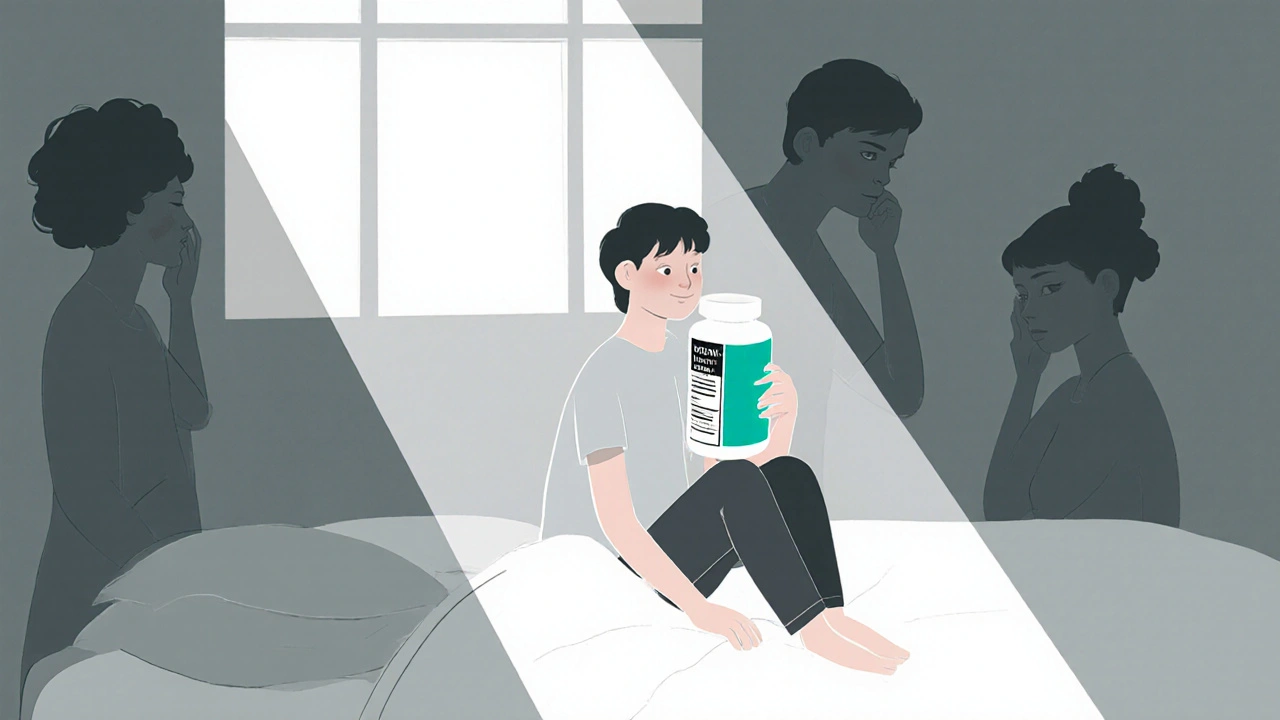
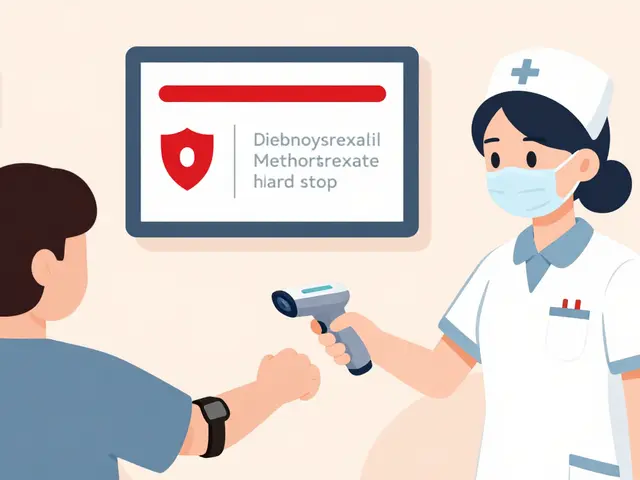
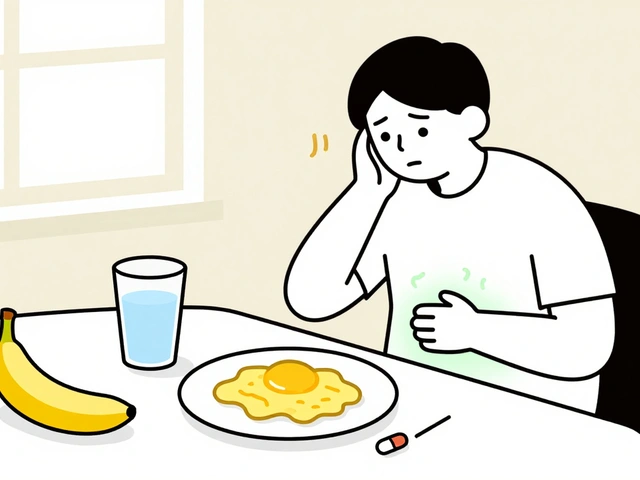
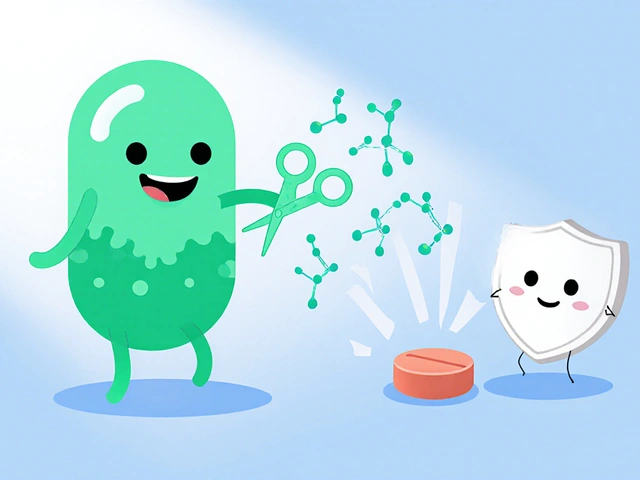

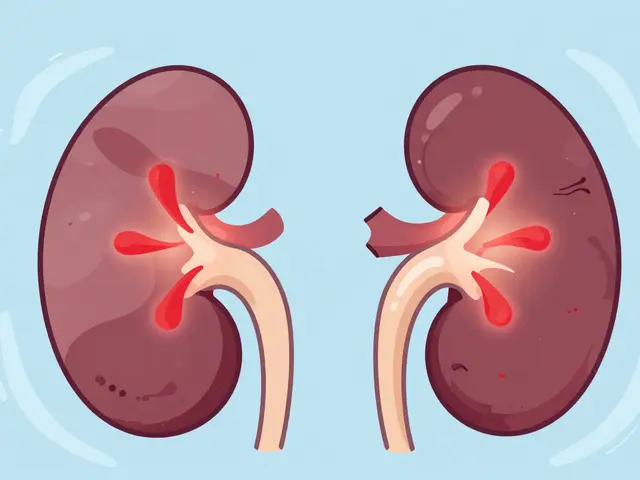
14 Comments
lol so antidepressants give you energy to kill yourself? sounds like a bad anime plot bruh 😅
This is why I don't trust Big Pharma. They profit off fear. They slap a black box on a pill so you panic and keep buying more. The real danger? Doctors who treat depression like it's a broken faucet you just turn off. You don't fix a soul with a chemical. You fix it with someone who sits in the dark with you. And no pill does that.
i started sertraline last month and yeah the first two weeks i felt like a zombie who suddenly remembered how to scream. i was staring at the ceiling thinking about jumping out the window but i also had the energy to text my mom and say 'i dont think i can do this'. she came over. we cried. we ordered pizza. i'm still here. the meds helped. but my mom? she saved me.
The black box is a monument to fear masquerading as caution. We treat depression like it's a math problem with one right answer. Take pill. Feel better. Done. But the brain isn't a calculator. It's a storm. And sometimes the storm needs wind to move. Antidepressants don't make you suicidal-they make you alive enough to feel how deep the wound is. That's not the drug's fault. That's the depression's last scream before it lets go. The real tragedy? We're so scared of the scream we silence the medicine before the healing can begin.
people dont get it. the warning wasnt meant to scare people off meds. it was meant to make doctors check in. but now everyone thinks its a death sentence. i had a cousin who stopped her meds because of this. she died last year. the black box didnt kill her. ignorance did.
YOU ARE NOT ALONE. IF YOU'RE READING THIS AND YOU'RE HURTING-CALL SOMEONE. ANYONE. TEXT A FRIEND. CALL A CRISIS LINE. THIS FEELING IS TEMPORARY. YOU ARE WORTH MORE THAN THIS MOMENT. I BELIEVE IN YOU. YOU GOT THIS.
this is all a psyop. antidepressants are just government mind control. they give you energy so you can work harder and pay more taxes. the black box? That's the warning they want you to see so you don't look deeper. they don't want you to know the real reason you're depressed-because the system is rigged. wake up.
How quaint. You treat mental illness like it's a glitch in a poorly coded app. You slap a warning label on it and call it science. Meanwhile, in countries that don't infantilize their patients with black boxes, people recover faster. The FDA isn't protecting you. It's infantilizing you. You're not a child. You're a human being with a nervous system. Stop outsourcing your courage to a government sticker.
This is why America is falling apart. We medicate every feeling. We turn pain into a prescription. We don't raise kids to be resilient-we give them pills to numb the world. The black box is a Band-Aid on a bullet wound. The real issue? We've forgotten how to suffer with dignity. We've turned healing into a consumer product. And now we're surprised when people die because they were too scared to buy the product.
I read this and just felt so seen. I was on paroxetine for a year. The first month? I felt like I was trapped in a glass box screaming. I didn't want to die. I just wanted the noise to stop. My therapist said, 'It's not the drug. It's your brain catching up.' I kept going. I cried every day. But I didn't quit. And now? I'm writing this from a park bench with my dog. It took time. It took help. It took not giving up.
I just want to say thank you for writing this with such care. I’ve been on fluoxetine for 18 months now. I didn’t realize how much I’d lost until I started feeling again. The suicidal thoughts didn’t vanish-they just… faded, like smoke in the wind. I wish more people knew that recovery isn’t linear. It’s messy. It’s ugly. But it’s possible. And you don’t have to do it alone.
You’re all missing the point. The FDA didn’t add the warning because of data. They added it because of lawsuits. The real risk isn’t the drug-it’s the legal liability. We’ve turned medicine into a courtroom drama. And the people who need help? They’re the ones getting caught in the crossfire.
I was 19. I started sertraline. Three weeks in, I sat in my car at 3 a.m. with the engine running. I had the keys in my hand. I thought, 'I’m not scared of death. I’m scared of never feeling anything again.' I called my sister. She didn’t say 'it’s just the meds.' She said, 'I’m coming over. Bring your blanket.' That’s what saved me. Not the pill. Not the warning. Just someone who showed up.
I just wanted to say… I’ve been on antidepressants for six years. The first month was hell. But I’m alive. I have a job. I have friends. I laugh sometimes. I don’t think about dying anymore. I don’t know if it was the meds, the therapy, or just time. But I’m grateful for all of it. If you’re reading this and you’re scared-please, don’t stop. You’re not weak for needing help. You’re brave for trying.